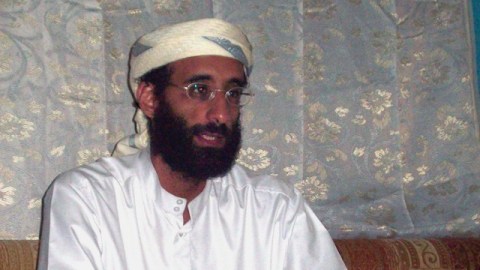Can Obama Order You Killed?

On September 30, 2011, The New York Times reported that the C.I.A. had killed a fundamentalist iman named Anwar al-Awlaki in a drone strike over Yemen. Heralding the strike, President Obama called al-Awlaki “the leader of external operations for Al Qaeda in the Arabian Peninsula.” Al-Awlaki was allegedly involved in planning “Underwear Bomber” Umar Farouk Abdulmutallab’s failed attempt to blow up a plane to Detroit in 2009. Al-Awlaki had repeatedly called online for Muslims to kill Americans, leading Saudi television channel Al Arabiya to call him “the bin Laden of the Internet.” But Al-Awlaki was also an American citizen, since he was born in the U.S. Stripped of details, the story is this: President Obama ordered the death of an American citizen who had never been convicted of any crime.
Obama approved the killing of al-Awlaki in 2010, by placing al-Awlaki on a list of people targeted for killing. Al-Awlaki’s name was not the only name on the list. Abu Yahya al-Libi, supposedly Al Qaeda’s second in command, was killed in a similar drone strike in Pakistan earlier this week. His predecessor, Atiyah Abd al-Rahman, was killed in a missile strike in Pakistan last August. Al-Awlaki’s sixteen-year-old son Abdulrahman al-Awlaki—also an American citizen—was killed by drones in Yemen just two weeks after his father’s death, although it’s not clear that he was the target of the attack. In 2010, Dana Priest reported that there were other Americans on the list besides Anwar al-Awlaki.
As Jo Becker and Scott Shane recently reported, every week or so a large group of national security officials meet by secure video conference to nominate people for Obama’s “kill list.” The group’s nominations go to Obama, who personally signs off on every name. As Mark Hosenball has pointed out, no law grants authority to the group and no public record of its deliberations is kept. Congress, of course, approved the use of military force against Al Qaeda after the September 11 attacks. And military commanders make similar decisions to attack targets on the battlefield all the time.
The specific killing of al-Awlaki was originally justified in a secret legal memo written in 2010. Although political assassinations are banned under an executive order issued by President Ford, the memo argues that the order doesn’t apply to military operations in an armed conflict. Since al-Awlaki posed a threat to Americans, if it wasn’t possible take him alive, it would be legal to target him. Not everyone else agrees. Before al-Awlaki’s death, his father sought an injunction in an American court to have al-Awlaki’s name removed from the kill list. But the suit was dismissed on the grounds that his father didn’t have standing to sue. “There’s no question that the government has the authority to use lethal force against Americans who join the Taliban, say, or who join the insurgency in Iraq,” the ACLU’s Jameel Jaffer said. “But the United States is not at war in Yemen, and the government doesn’t have a blank check to kill terrorism suspects wherever they are in the world.”
Was al-Awlaki’s killing really justified by the threat he posed? Terrorism experts are divided on whether he really had an operational role. Big Think’s own resident expert Gregory Johnsen argued before al-Awlaki’s death that he was a minor player who posed little real threat and whose killing could backfire on the U.S. Others disagreed. Of course, the president presumably has access to better intelligence than we do. Ultimately we have to take the administration’s word that al-Awlaki was dangerous.
But whether or not al-Awlaki was really dangerous, we should be very reluctant to concede to the President the power to order the deaths of American citizens solely on his own authority. As Glenn Greenwald reminds us, the Fifth Amendment says that no person shall be deprived of life “without due process of law.” The principle that the executive can’t detain or kill people solely on its own authority is arguably the foundational principle of modern legal systems. Without that guarantee of due process a president or king’s power is practically limitless.
The memo justifying the killing of al-Awlaki argued that the internal deliberations of executive branch—in essence, having the president talk the issue over with his advisers—were sufficient due process. It’s true, as Jack Goldsmith says, that what counts as “due process” is different in times of war. But this is hardly more due process than the royal abuse of power the authors of the Constitution sought to prevent. It’s dangerous in any case to extend battlefield logic to a vague, unending struggle against anyone who would do us harm like the “War on Terror.”
The reason to insist on real due process is not that you necessarily feel sympathy for al-Awlaki. It is that by the same logic that Obama ordered al-Awlaki killed, he could order any of us killed. In practice, of course, most of us needn’t worry that we will be hit by drone strikes. But that doesn’t mean that no innocent people will be marked for death, nor that the power will never be abused. By most accounts Obama takes the decision to order someone’s death seriously. Nevertheless, any power we allow Obama is a power we give to all future presidents. “In the end,” as Amy Davidson says, “we are not really being asked to trust Obama, or his niceness, but the office of the Presidency.” After all, Richard Nixon was democratically elected too. Maybe you trust Obama—but would you have trusted Nixon?
Anwar al-Awlaki image from Muhammad ud-Deen





